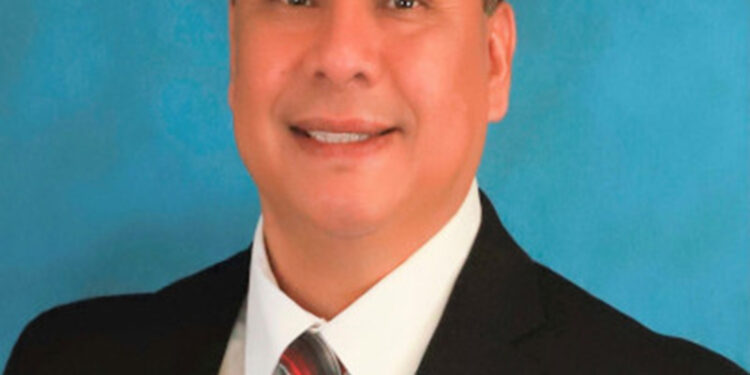Morgan Taylor/Reporter
OKMULGEE, Oklahoma – College of Muscogee Nation’s very own President Dr. Monte Randall was selected by the Aspen Institute College Experience Program as one of the 25 leaders for the 2021-22 class of Aspen New Presidents Fellowship.
Randall claimed it was a process to be chosen for the program and it all started with a nomination.
“I was nominated by one of our partners ‘Achieving the Dream,’” Randall said. “It was one of the directors that had nominated me.”
After getting nominated, he was invited to apply and decided to fill out an application in early May.
In early July, Randall was invited to do an interview with the Institute and recently discovered he was one of the 25 to be selected for the cohort.
The Institute’s idea of the cohort is to develop a diverse group of leaders through its fellowship program. For the next nine months, the 25 “fellows” will engage in residential sessions and virtual learning to develop strategies to meet their goals for student success and equity with data to assess challenges and progress.
“We continue to learn how the best community colleges improve outcomes for students and close persistent race- and income-based equity gaps,” College Excellence Program Executive Director Josh Wyner said. “This year’s fellows have demonstrated their commitment to achieving excellent and equitable student outcomes, and we are eager to work with them as they join Aspen’s network of more than 100 fellows who serve as community college presidents.”
Out of the chosen 25, Randall is one of the only three presidents from a tribal college. President of Lac Courte Oreilles Ojibwe College in Wisconsin Russell Swagger and President of Ilisagvik College in Alaska Justina Wilhelm are the other two tribal college presidents selected.
Randall said the program will provide professional development opportunities as a group and individually.
“They are going to work with us on increasing our student retention and graduation rate and what we consider out key performance indicators,” he said. “They are going to help us to collect and analyze student data. That’s how they are going help us improve those rates.”
Randall said he looks forward to professional development piece of it.
“I hope this helps me understand what is the important data I need to be looking at and how to analyze it,” Randall said. “Then how to redirect as needed and implement new strategies on the improvement measures through the data.”
Coming from a small tribal college, Randall claimed his contribution has a lot to offer the program.
“Other schools can look at how we’re addressing retention and graduation efforts through our cultural curriculum and tribal sense of resiliency,” he said. “Also how we engage our students on campus through our culture and language.”
The new class of Aspen Presidential Fellows is 48 percent female and 64 percent people of color located across 18 states with diverse institutions.





